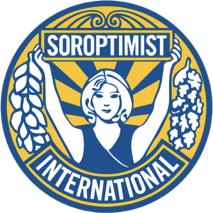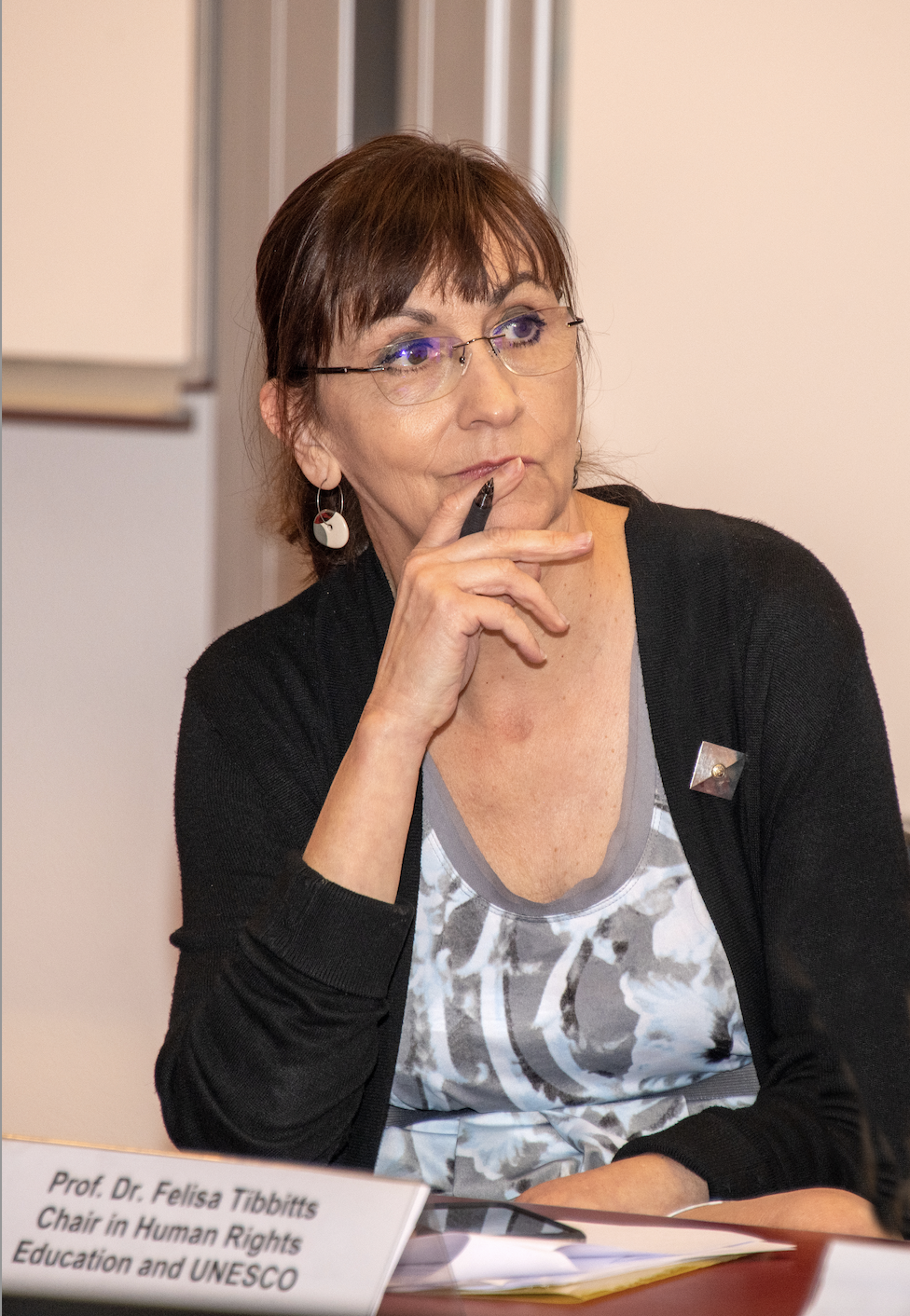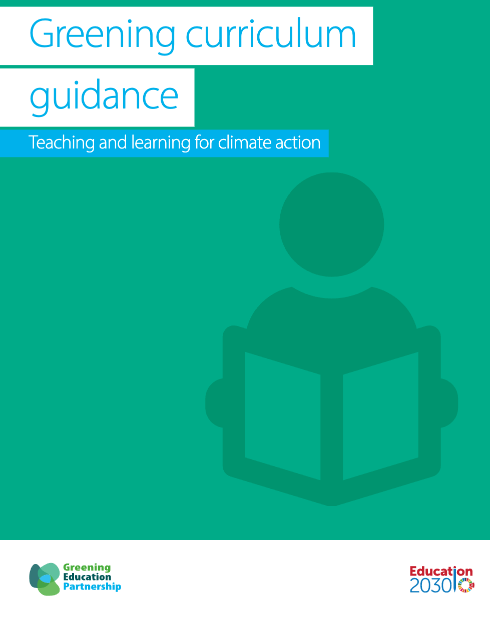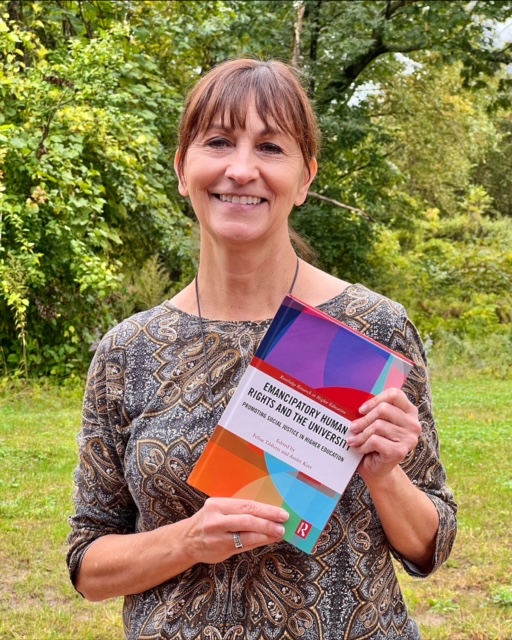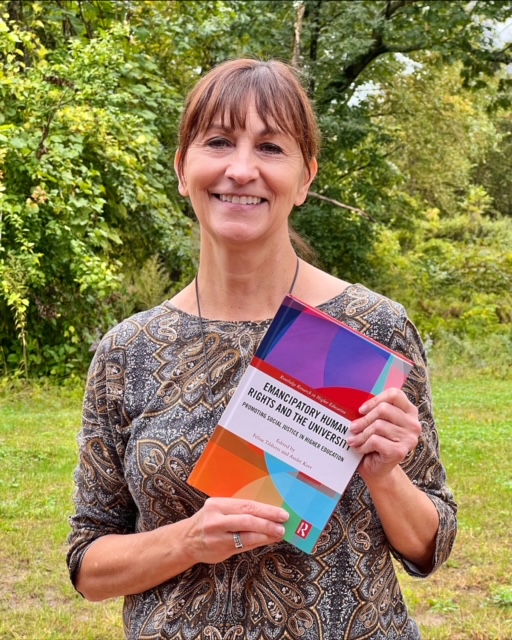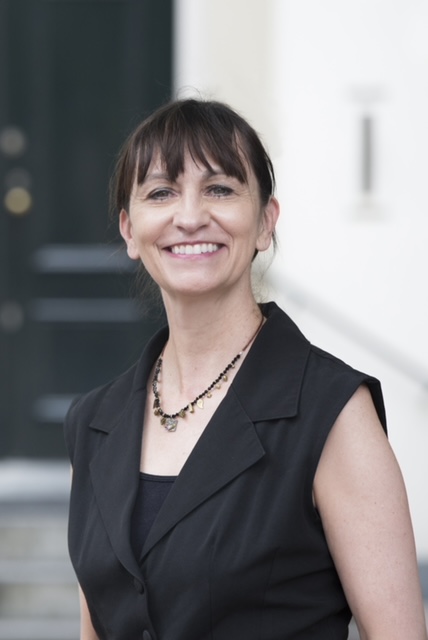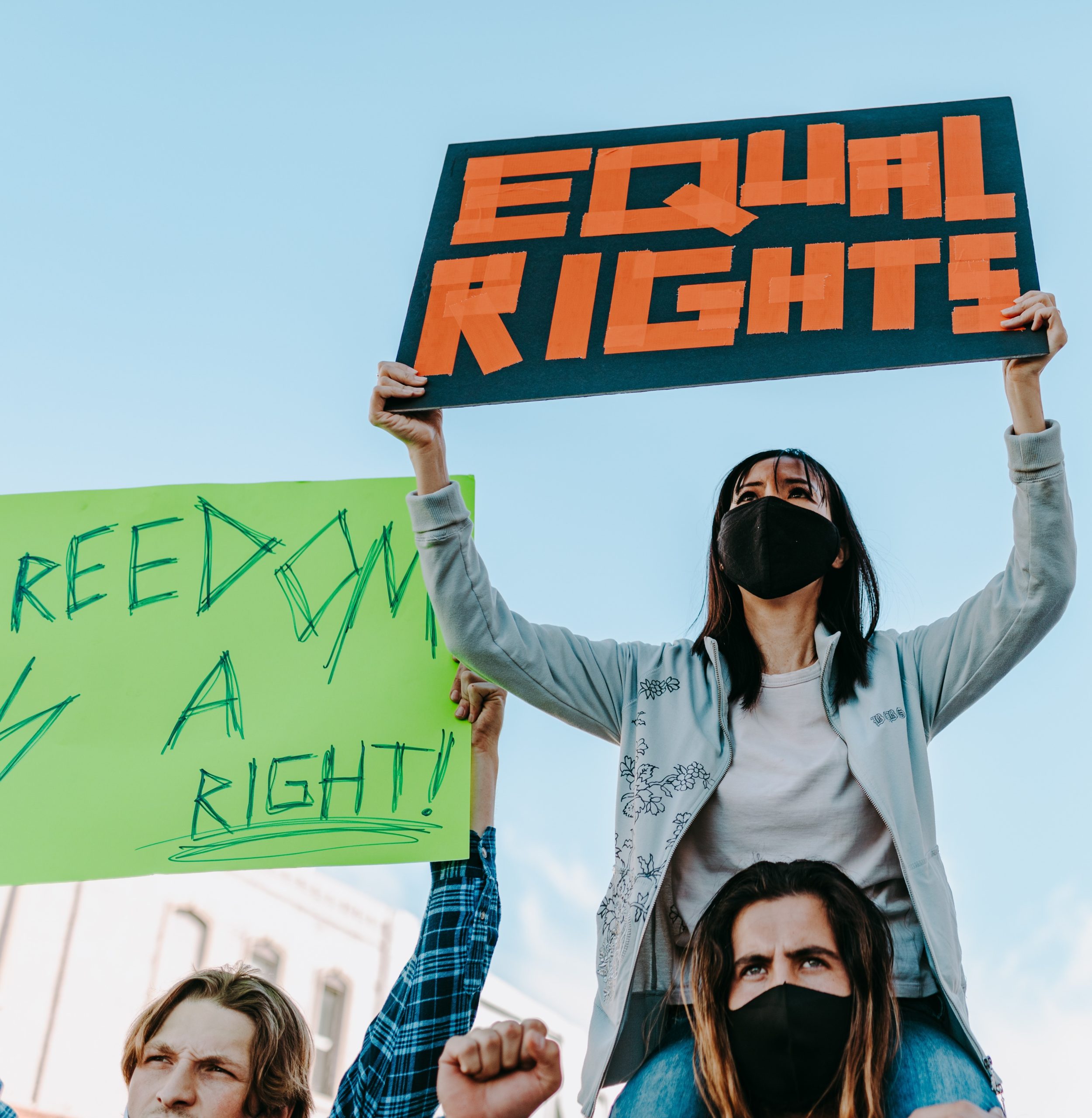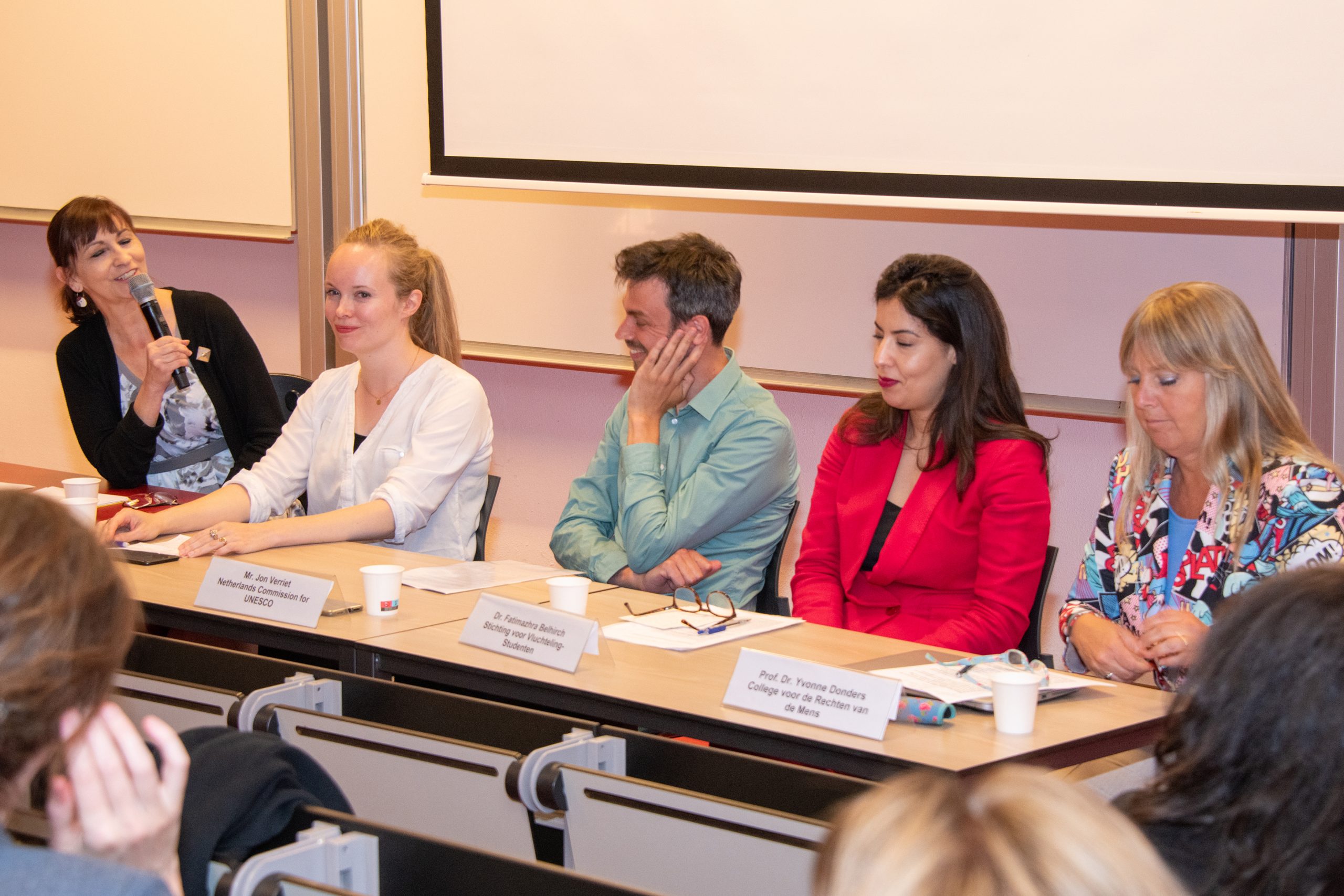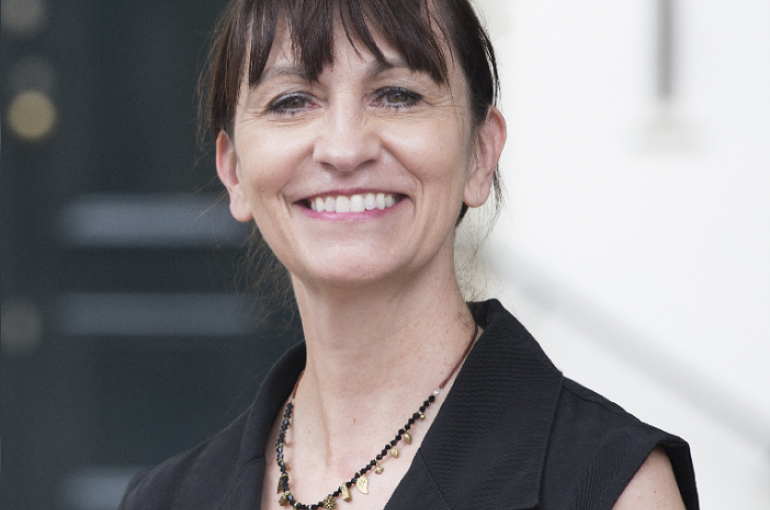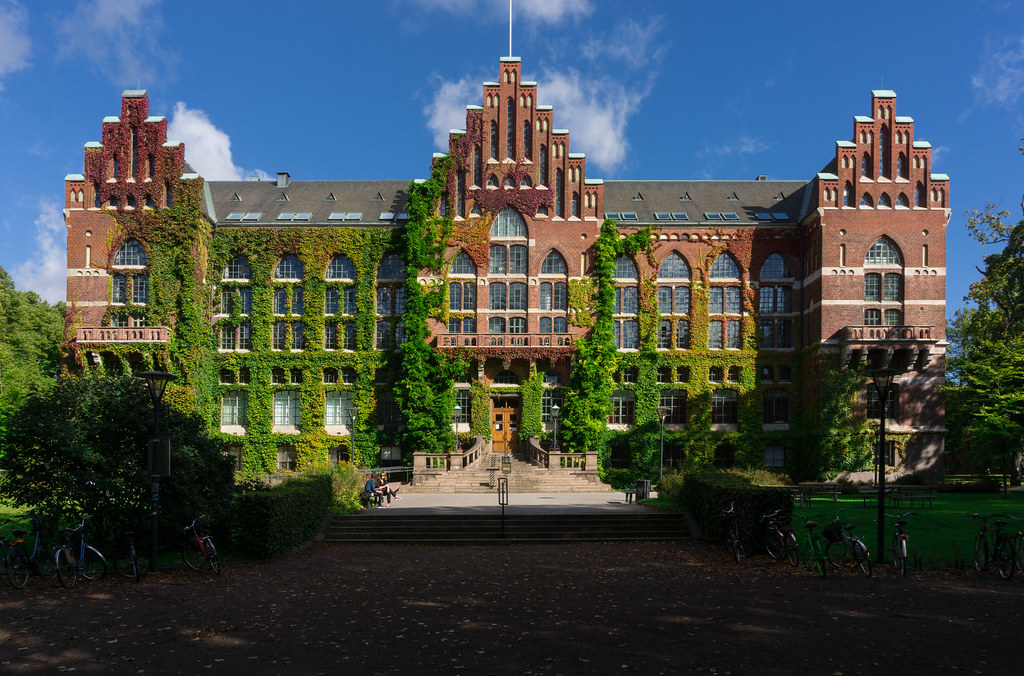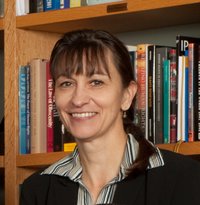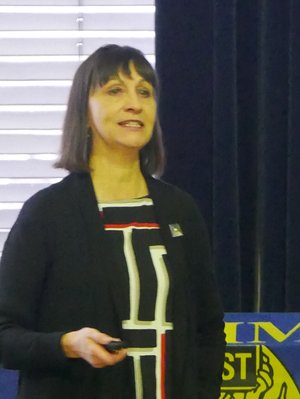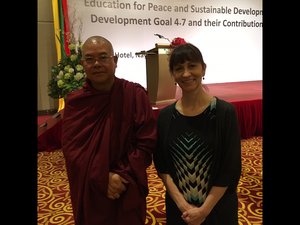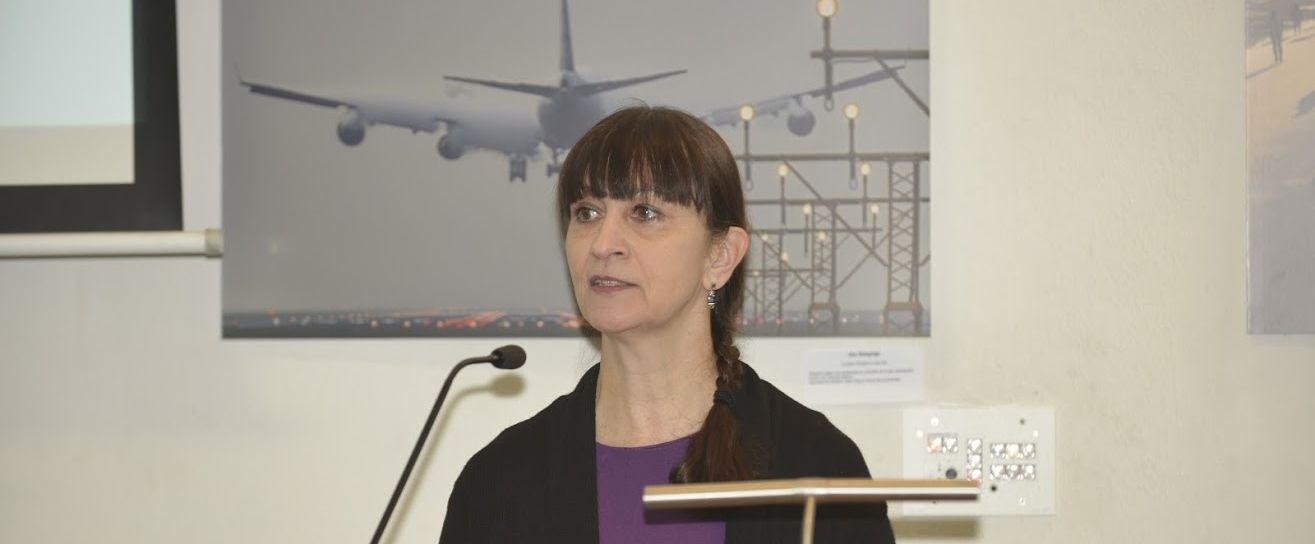Leerstoel Mensenrechteneducatie
De Amerikaanse Felisa Tibbitts is in 2017 voor een periode van 6 jaar benoemd tot bijzonder hoogleraar mensenrechteneducatie, verbonden aan de Rijksuniversiteit Utrecht en de University College Roosevelt in Middelburg. De Haarlemse Soroptimist Carla Atzema-Looman liet na haar overlijden in 2013 haar bezittingen na aan de Unie van Soroptimisten. Hiermee is de leerstoel van Prof. Tibbitts medegefinancierd, conform de wens van Carla.
UNESCO
Daarnaast heeft Felisa Tibbitts een leerstoel gekregen van UNESCO.
Mensenrechteneducatie binnen het onderwijs
Tibbitts doet tijdens haar zesjarige aanstelling onderzoek naar mensenrechteneducatie binnen het onderwijs aan beroepsgroepen als politie, gezondheidszorg en onderwijs en levert daarmee een bijdrage aan de doelstellingen van het Soroptimisme. Ook wil zij Soroptimisten en andere maatschappelijke organisaties betrekken bij haar werk en Nederlandse mensenrechten organisaties ondersteunen.

What are human rights
ENG: Learn the basics about the origins of human rights and international human rights legal standards.
NL: Hier vind je de basisprincipes van het ontstaan van de juridische grondslagen van Mensenrechten en Internationale Mensenrechten.
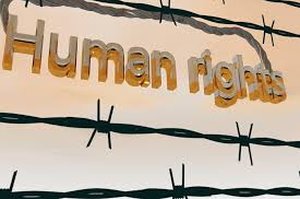

Get started in Human Rights Education
Primer: practicing HRE in the Classroom
ENG: Learn about how to begin planning for a human rights education activity or lesson.
NL: Kijk hoe je kunt beginnen met het plannen van Mensenrechteneducatie activiteiten en colleges. HRE activities you can use
ENG: Get access to activities and lessons that are available in a range of topics, such as the rights of women, children’s rights, the rights of migrants and the rights of persons with disabilities. Resources are available in English and Dutch.
NL: Krijg toegang tot activiteiten en leerprogramma’s in een aantal onderwerpen van vrouwenrechten, kinderrechten, de rechten van migranten en de rechten van minder valide (zowel fysiek als psychisch) personen.
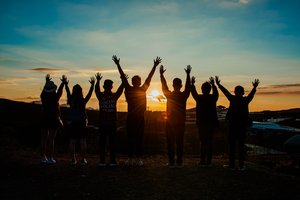

Dutch organizations active in HRE
ENG: Find out which agencies and organizations in the Netherlands are active in human rights and human rights education. These organizations may have someone that can present at a Soroptomist club event or accept volunteers.
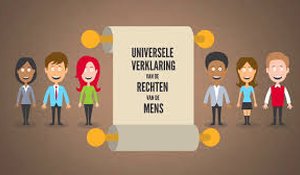

NL: Lees hier welke Nederlandse stichtingen en organisaties betrokken zijn bij Mensenrechten en -educatie. Deze organisaties kunnen wellicht een lezing houden op een clubavond of hebben vrijwilligers vanuit het Soroptimisme nodig.


Soroptimist interested in engaging in HRE
ENG: If you are interested to work with other Soroptomists in human rights education, groups are being organized according to professional background. Find out more.
NL: Kijk naar dit bestnad als je geinteresseerd bent om met andere Soroptimisten samen te werken op het gebied van menenrechteneducatie vanuit je professionele achtergrond.
Contact Felisa Tibbits
Human Rights Here!
– nieuwe blog – news from Prof. Felisa Tibbitts
Felisa Tibbitts – co-founder en editor van Human Rights Here – kondigt deze nieuwe blog van het Netherlands Network of Human Rights Research (NNHRR) aan!
Human Rights Here (HRH) heeft tot doel de kritische uitwisseling van onderzoek, analyse en ideeën tussen wetenschappers en practicioners te bevorderen. Deze blog is opgezet om een nauwere verbinding te smeden tussen mensenrechtenonderzoek en rechten in de praktijk. Human Rights Here is inclusief – door strategieën te promoten die resulteren in een bewustzijn en een cultuur van mensenrechten voor alle belanghebbenden. Inzendingen voor de Human Rights Here (HRH)- blog van wetenschappers en praktijkmensen uit binnen- en buitenland zijn welkom.
Het Nederlands Netwerk voor Mensenrechtenonderzoek (NNHRR) is in 2017 opgericht.
Het netwerk is een belangrijk platform geworden voor mensenrechtenonderzoekers die betekenisvolle contacten en duurzame banden in Nederland willen vormen. NNHRR verbindt onderzoekers en academische instellingen met innovatieve ideeën en outputs en genereert zo relevante maatschappelijke inzichten. Het netwerk vergroot ook de zichtbaarheid van mensenrechtenwerk aan universiteiten, in Nederland en in het buitenland en heeft ook tot doel een centraal trefpunt te worden voor niet-academische organisaties zoals ministeries, ngo’s en internationale organisaties die zich bezighouden met toegepaste onderzoeksvragen.
Er zijn regelmatig nieuwe interessante bijdragen op de Human Rights Here blog te vinden!
– blog februari 2022 – news from Prof. Felisa Tibbitts
Prof dr Felisa Tibbitts, Carla Atzema-Looman Chair in Human Rights Education at Utrecht University, was invited to present in a range of UNESCO webinars towards the end of 2021. One of these webinars, the UNESCO-USC Shoah webinar, marked the launch of a new IWitness website on addressing antisemitism through education. UNESCO and USC Shoah Foundation organized a virtual panel discussion on the topic of “How to counter antisemitism: the role of educators and education”. Felisa presented on specific strategies that educators and school leaders can use to combat discrimination and hate speech.
Some points she made: Addressing hate speech does not mean limiting or prohibiting freedom of speech. It does mean keeping hate speech from escalating into something more dangerous, particularly incitement to discrimination, hostility, and violence, which is prohibited under international law. A meaningful inclusion of human rights norms and legal standards in school curriculum concerns deep engagement with the ethics of non-discrimination, the rights of vulnerable groups and solidarity with them in protecting and ensuring that their human rights are respected.
The new USC Shoah Foundation IWitness site offers educational resources, witness testimonies and practical tools to build resilience to antisemitism and learn about its contemporary manifestations, origins, evolution and history, including the history of the Holocaust. The site is based on UNESCO and the OSCE Office for Democratic Institutions and Human Rights (ODIHR) guidelines for policymakers on Addressing Anti-Semitism Through Education, and a set of four framework curricula for trainers of primary education teachers, secondary education teachers, vocational education teachers, and school directors.
